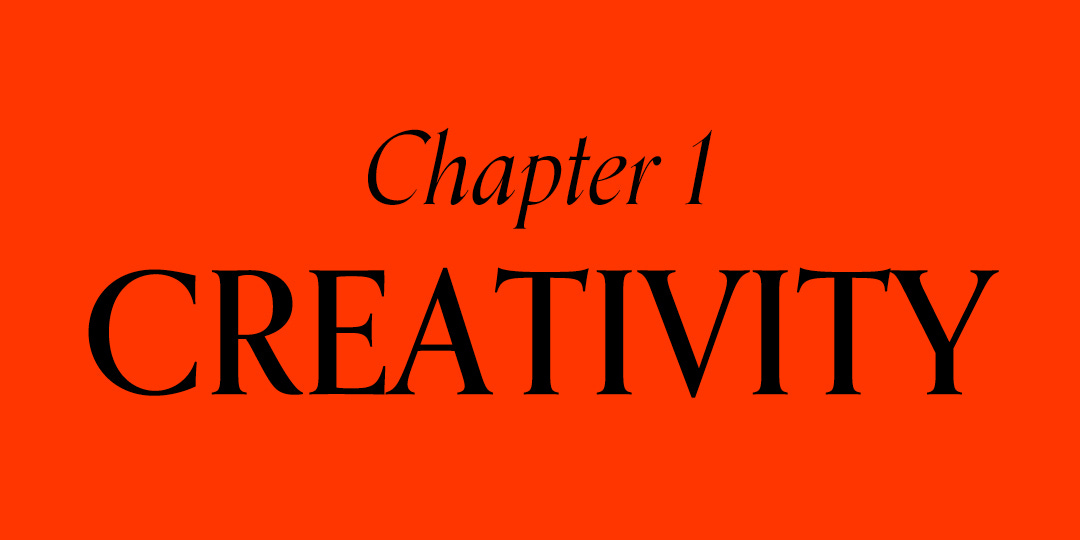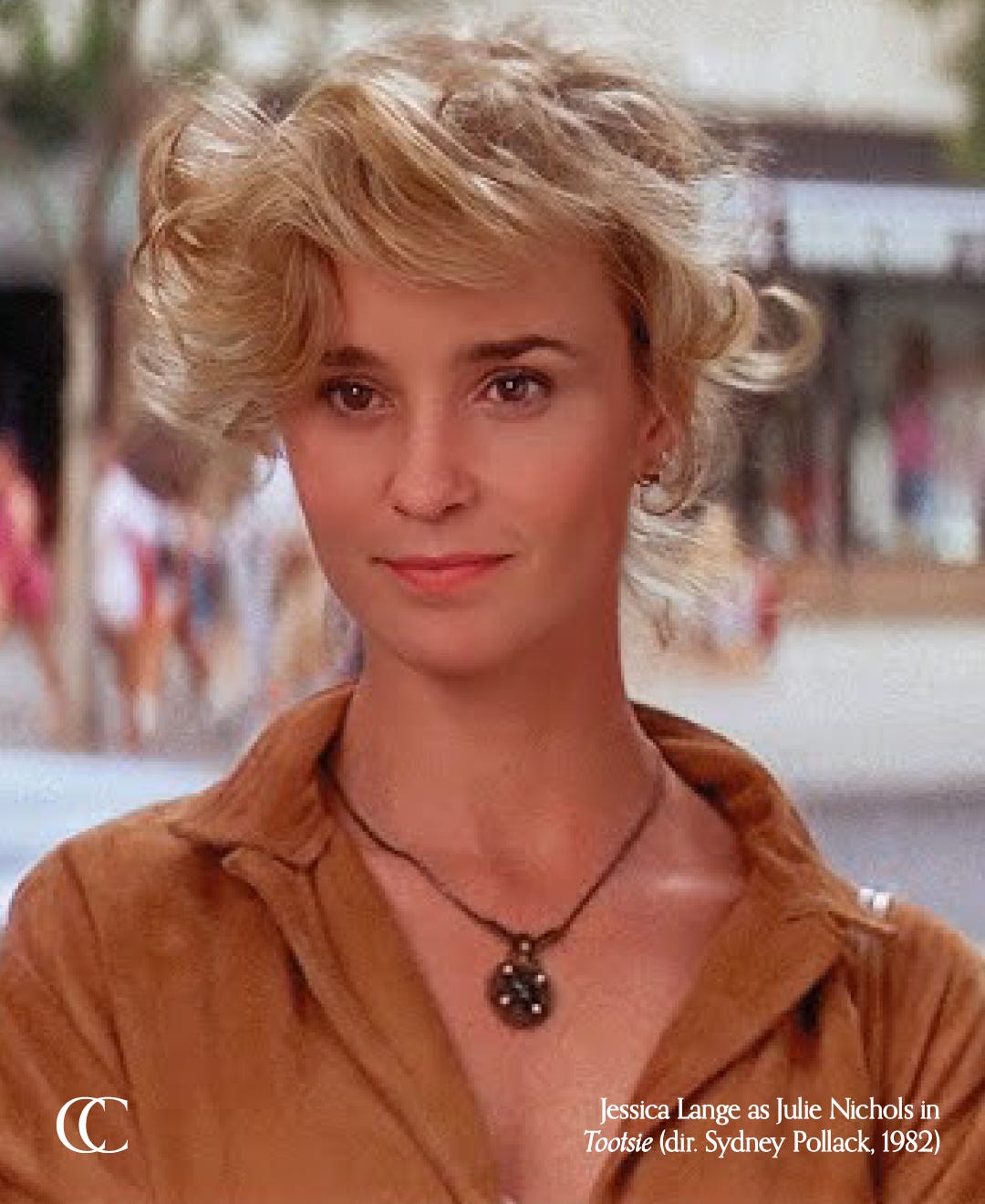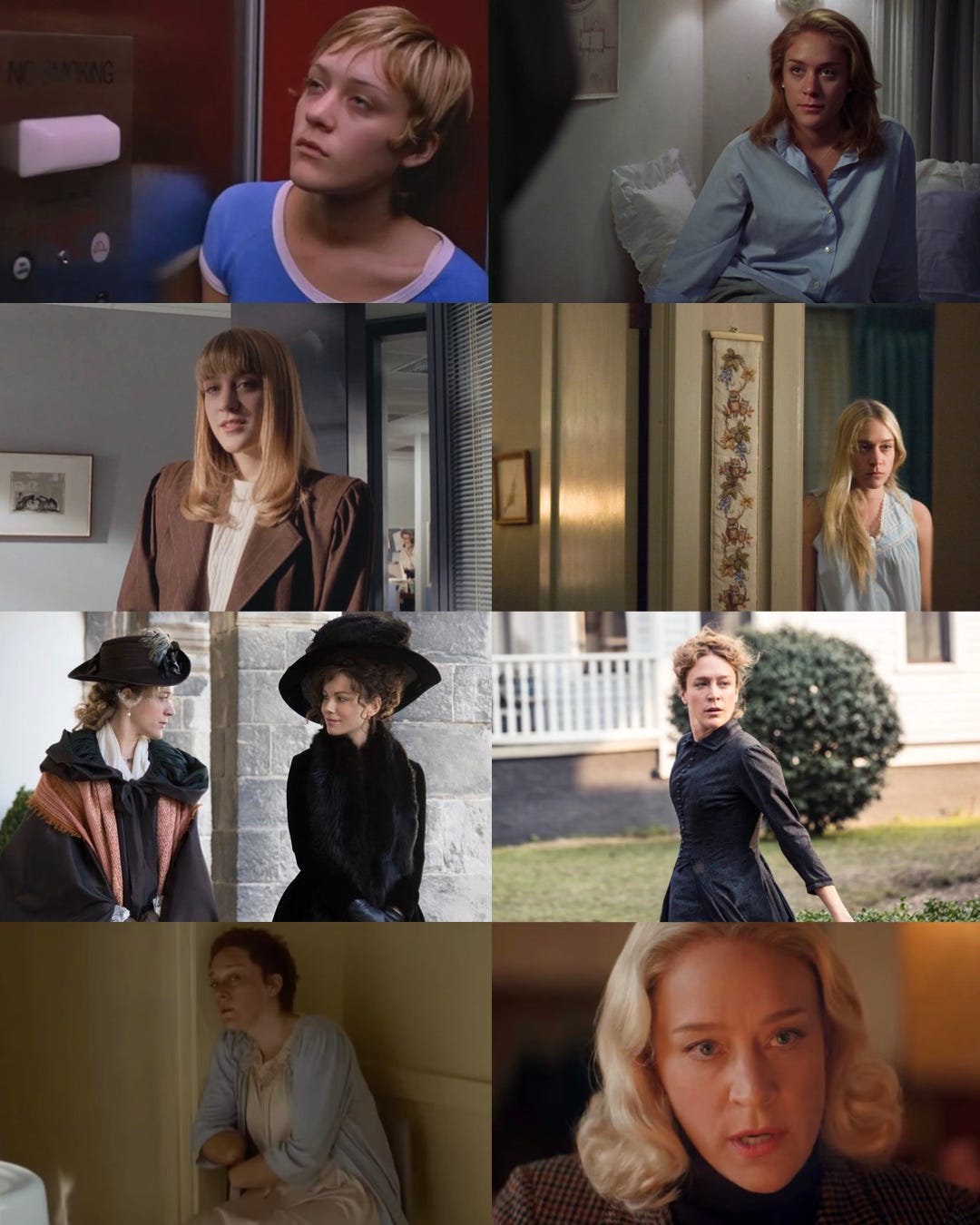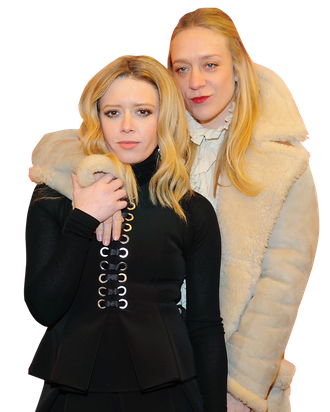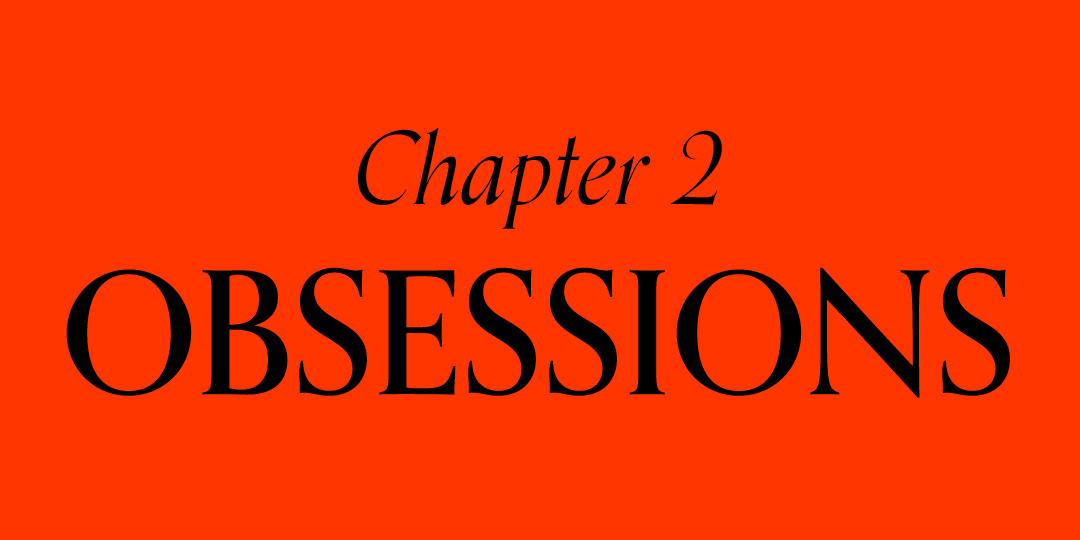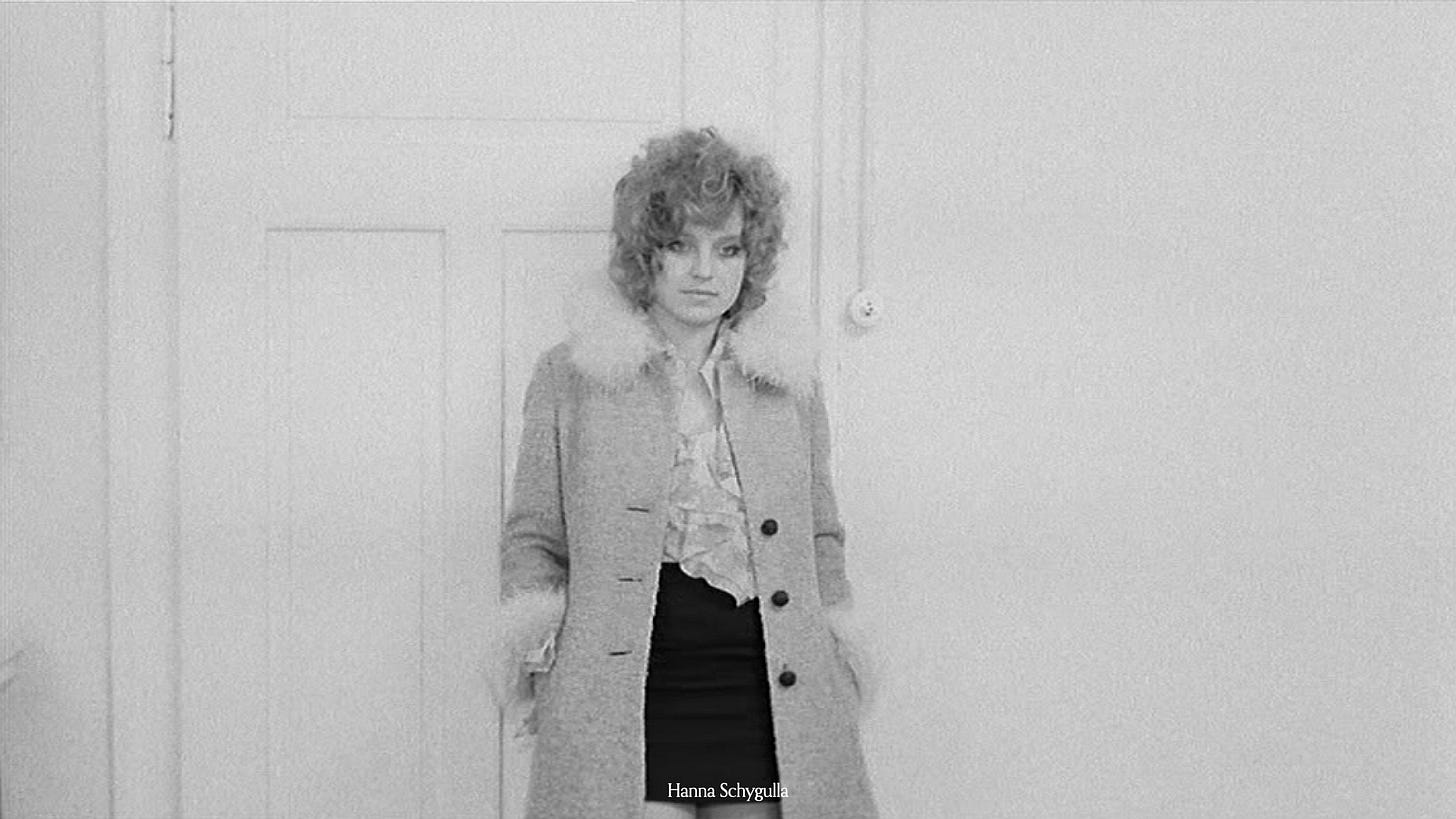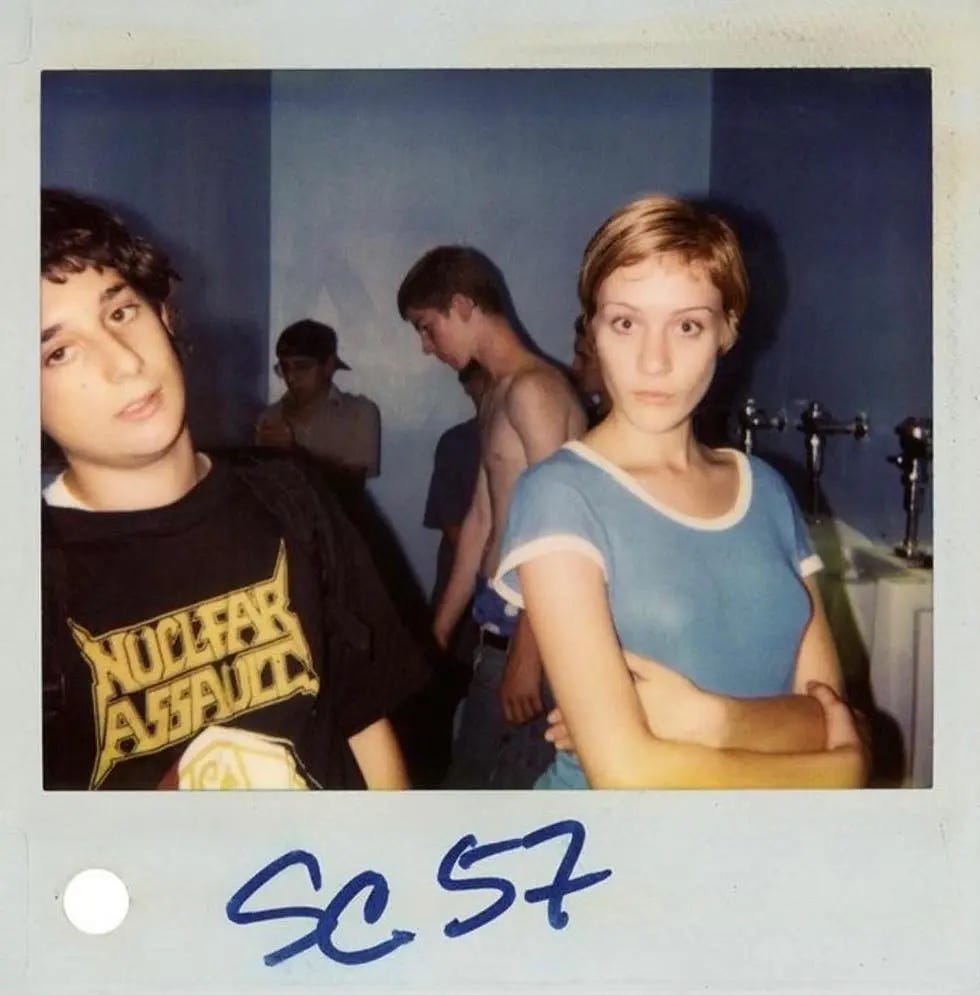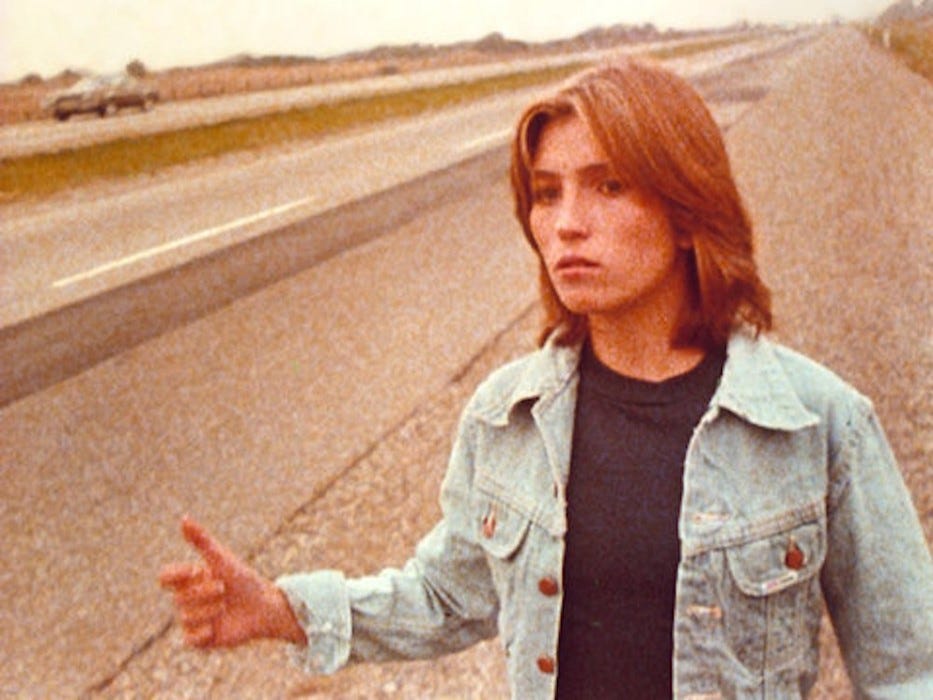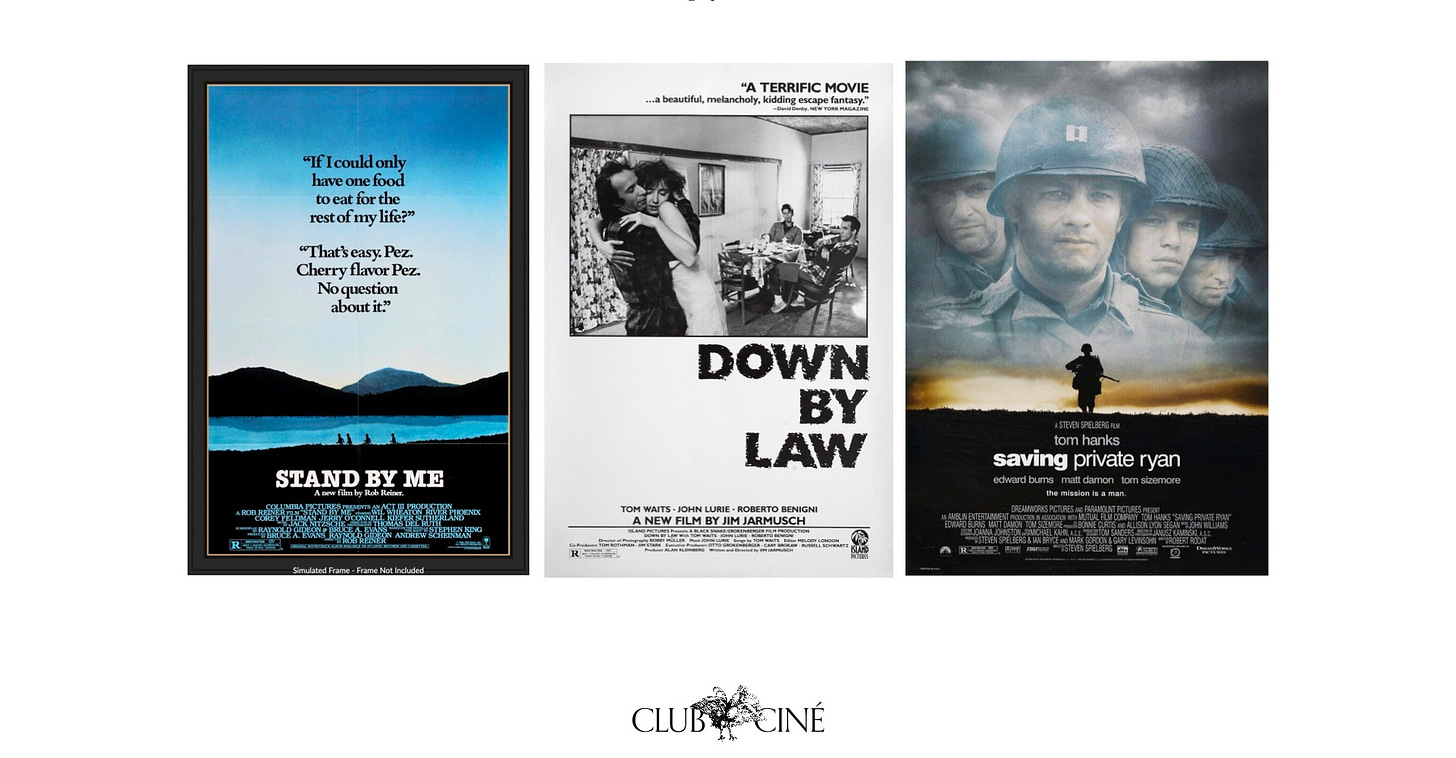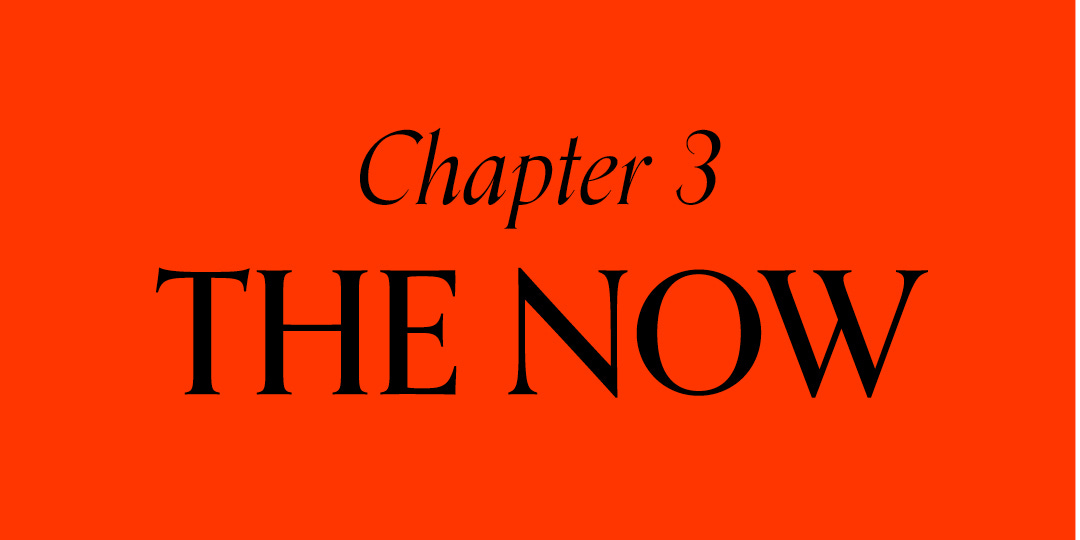Cinétherapy: Chloë Sevigny
“I’m entering my ‘dame era’. It’s getting harder to watch myself, to look at myself, but I am excited about the work that I can do”
Chloë Sevigny is an actress and director known for her bold, unconventional roles and avant-garde style. Born in Springfield, Massachusetts in 1974 and raised in Darien, Connecticut, she worked as a model, appearing in music videos for Sonic Youth and the Lemonheads. Her film debut came in Kids (dir. Larry Clark, 1995) and she earned a Best Supporting Actress Oscar nomination for Boys Don’t Cry (dir. Kimberly Peirce, 1999). She has built a career in independent and boundary-pushing cinema, including standout performances in The Last Days of Disco (dir Whit Stillman, 1998), Lizzie (dir. Craig William Macneill, 2018), and Bones and All (dir Luca Gudagnino, 2022). A muse to the fashion world and a fixture in downtown New York culture, she continues to influence both film and fashion with her fearless and singular aesthetic.
Interview by Tom Macklin
Illustration by Richard Kilroy
What’s your earliest film memory?
I think it was being afraid of the monkeys and The Wizard of Oz (dir. Victor Fleming, 1939), they were terrifying. I was also very into the vinyl soundtrack as I had a baby blue plastic portable record player. Whenever I would even hear the music that accompanied that scene, I would pick up the needle and move it forward, because it had such a lasting impression that I couldn’t even then listen to the music. I was probably four or five when I first saw it on TV.
In junior high I had Stand by Me (dir. Rob Reiner, 1986) on VHS, and I watched that every single day after school. That was the first movie that I became obsessive over, and knew every single line.
I discovered Jessica Lange when, aged about 10, I became obsessed with Tootsie (dir. Sydney Pollack, 1982). The film played at our small local cinema, the Darien Playhouse, for a long run. I remember going to watch Tootsie over and over and over again. I was pretty young to be watching it and not really understanding all of it, but I found the glamour and beauty of Jessica Lange intriguing. My mother was very naturally beautiful, but she wasn't into fashion magazines, so I never had images of beautiful women around, except for my dad’s LPs, so discovering Jessica was above and beyond. I also thought Teri Garr was hilarious.
Did your parents shape your taste in films?
They weren’t really into the movies. When I was younger, my dad took us to see a Rolling Stones concert movie. He was an art teacher, commuted to work and had an extreme work schedule, so on the weekends, he liked to let loose. I remember him singing along and standing up in the theatre. I was so mortified; I was lying on the ground. There was a little bit of danger that I associated with going to the movies and that was a pretty uncomfortable experience. But generally, movies weren’t important to my parents, whereas being outside and being together was. The TV was kind of always on in the background. I went to the movies with my friends when I got a little older and discovered them on my own. My more serious love of movies came when I was about 15.
How did that serious love of movies develop?
There was a video store in Darien called the Roxy, and they had quite arty movies. I had a crowd of older kids that I was friends with that were really into alternative music, and we would watch Jim Jarmusch movies. I remember being really taken by Down by Law (1986) and Stranger Than Paradise (1984) and thinking, what is this kind of movie? I didn’t know what an arthouse movie was necessarily like before then. Harold and Maude (dir. Hal Ashby, 1971) was another seminal movie from my youth, and movies like River’s Edge (dir. Tim Hunter, 1986) – movies about teenagers because I was a teenager, drawn to those kinds of movies. [The director] Gus Van Sant had gone to my high school, and we had the same art teacher, and when My Own Private Idaho (1991) was coming out, I was like, oh, I’m gonna go this weekend to see it. And my art teacher was like, no, it’s too sophisticated for you. You won’t understand it. You can’t go. I was like, what? You’re an art teacher, you’re telling me not to go to this movie! So I guess I was going to the movies if I was going to see that.
What was your local cinema?
The Avon in Stanford, Conneticut. It’s still there. I actually did a Q&A for Lean on Pete (dir. Andrew Haigh, 2017) there. There was an arthouse cinema in Norwalk [a city near Darien], Garden Cinemas, that I went to.
Below: From VHS to Art House: Chloë Sevigny’s Early Cinematic World
What’s the most treasured piece of industry advice you’ve been given and how you live by it?
I remember Harmony [Korine, director; writer of Kids] mentioning a Werner Herzog quote that really stuck with me: your career, the films you make, it’s like building a house you’ll have to live in. That idea resonated deeply. I wanted to be able to stand by the movies I made for the rest of my life, to live with them, which meant I had to truly believe in them. I haven’t always held fast by that, but I’ve tried. Also, I don’t have any formal training and when I made Kids, Larry Clark said “all the other kids are in the same boat as you; don’t act, react”.
What did you learn working with Lauren Bacall on Dogville (dir. Lars von Trier, 2003)?
She did her own makeup and had a big magnifying mirror. I think I just learned to try and be more pleasant to people. It’s hard sometimes being away from home [Dogville was filmed in Sweden], in a weird place and having a lot of people touching you, having to do all these different personalities, and it can be draining. There’s obviously no need ever to be unkind to people but sometimes people can get snappy, and I think it’s hard to remember to keep everything in perspective and show kindness to everyone all the time. She didn’t really pass on anything, she seemed to be a little bitter that Bogey [Humphrey Bogart, Bacall’s husband and five-time co-star], in her mind, got all the credit for being a good actor, and people kind of just thought of her as a beauty. Sometimes I get frustrated that people think of me as this style icon and they don’t give me real credit for my acting.
What part of the creative process gives you most pleasure?
When I’m really in a comfortable situation, because a lot of times I feel like I can be easily intimidated by other actors or directors. When other actors maybe are taking things too seriously and making me feel like it’s too high stakes or something? I don’t know – there are so many variables that can put you in a certain frame of mind, but I think it’s the most rewarding when you’re working with people that really believe in you and give you the freedom to try stuff, but also know more about the character and story than you do, so they can direct you. Because I love getting direction. Some actors don’t. I love direction. I love when a director has a very specific idea of something, and they want you to bring it to life. To me, that’s very exciting. Some directors don’t say anything. I worked with Woody Allen [on Melinda and Melinda, 2004] and remember saying to someone, “Oh my God, he doesn’t say anything, he doesn’t direct me.” And they said, “the more he likes people, the less he talks to them, because he doesn’t have to give you any direction. He just likes what you're doing.” I guess he was kind of famous for that, but I didn’t know it. On the flip side, working with David Fincher [on Zodiac, 2007], and we did, like, 101 takes my first day, and I thought I was going to get fired, and then he called me up and told me, “you were great today, It’s just my process.”
I find it very rewarding experiencing different people's processes and how they approach work. Sometimes with younger filmmakers, I try and say, you know, listen, these actors want to find it in the moment, and they need to know why they’re motivated to come over here and do something and, other more senior directors tell me, just walk over there and get that. Why do you need motivation? It was just like, go pick it up.
Which of your roles are you most proud of?
Lana Tisdel in Boys Don’t Cry as I got to develop a character who was based on a real person, she had a real storyline and an arc. I wanted to respect her story, and I wanted to bring an emotional depth to it, because I was so moved by it. We were isolated in Texas [making the film], and we all felt how special the material was, and became very close. We were at an age where we could party, wake up and work so there was an intimacy. We didn’t have families and people to go home to, so we leaned on each other to be that in the moment.
I heard Robert De Niro say you’ll always be remembered for one movie, for me it’s Kids. People still come up to me on the street about that film because it’s had such a wide impact, as far as you know, people seeing it, and it's still being seen, and it is affecting people. But to me, Boys Don't Cry was a more rewarding experience. So I'm gonna say I’m prouder of it. It was a more important movie to make.
Below: Chloë Sevigny’s on-screen evolution
Who has been your longest and most meaningful industry friendship.
Natasha Lyonne. We met through a mutual friend and bonded while filming the HBO movie If These Walls Could Talk 2 (dir. Martha Coolidge, 2000). We also did Party Monster (dir. Fenton Bailey and Randy Barbato, 2003). We were both really into subversive and transgressive literature and music. We’re both indie kids at heart, though quite different in personality. She’s very cerebral and, dare I say, hectic, hyper intellectual and neurotic, and I’m very practical and staid and still. We have an understanding, we have a support system between the two of us that’s really meaningful to both of us. Whenever I get a new offer, she’s the first person I call – sometimes even before my husband – to ask her thoughts. We talk about everything: relationships, family, career decisions, aging in the industry, insecurities… anything and everything. Having someone to lean on in both life and work like that is rare, and incredibly meaningful.
How have you influenced each other’s film choices and approach to making movies?
She lives in LA most of the time, out every night doing events, and has a wide social circle of people in the industry, and I have a very tightly contained, small one. I think we’re both at a point where we’re frustrated a little bit by our cynicism with the industry and certain norms – whether they’re racial, gender, age – that we were trying to help break through. She does a lot more work on that side than I do, as far as, producing projects and hiring people that wouldn’t necessarily get considered for parts. We’re also cynical about certain stories. Like, why tell that story now? Who cares? I don’t want to say we’re disillusioned, because we love the business, but I think we must be reminded every so often that there’s still work to be done. She was at Sundance with her boyfriend this year, who had a documentary showing and she came to see Atropia, directed by Hailey Gates, which I’m in and she’s like, “I love this movie”. She got very excited about the movie, and it was very exciting because we both don’t like a lot of new movies.
Do you have a favourite of your many magazine cover shoots?
l remember back in the day speaking to a friend when we were struggling actors, and she was friendly with Reese Witherspoon and other more mainstream actresses, and they were on the cover of all these big, high-fashion magazines, and she was talking about them and their careers, and I remember feeling kind of competitive and thinking “How come I’m not getting those?” I was on the cover of Vice, Purple and Self Service and I thought, this is just my milieu. This is cool, I’m okay with that – and it was a turning point for me where I was just like: these are my people. They celebrate me. Beyond Harper’s Bazaar or Vogue, these are the people that believe in me and want to promote the kind of work that I make.
The Club Ciné Edit:
The Covers That Captured Chloë Sevigny's Indie Film Star Power
What’s the one thing in a film that lights a fire in you?
I like women showing some sort of vulnerability like Emily Watson in Breaking the Waves (dir. Lars von Trier, 1996). There’s a rawness to the performance where you’re really feeling this person, and that triggers something in me. Also, whenever there’s anything to do with a father dying, because my father died when I was young, like Contact (dir. Robert Zemeckis, 1997). When Jodie Foster has that run-in with her father on the beach I almost threw up in the movie theatre, it was so emotional. I like any father-daughter narratives, they really get to me, really choke me up. I know this isn’t cinema, but even with The White Lotus [season three] finale where we see Lochlan being held by his father, who thinks he is going to die. I was crying uncontrollably.
Do you collect anything film-related?
I used to have a Minnie and Moskowitz (dir. John Cassavetes, 1971) poster. When I was younger, I would collect what you call badges, buttons or pins, obscure ones of actors. I had a Marx Brothers one that I was really into. Back then I was more into film-driven ephemera because we didn’t have the internet to see all that stuff, so it was nice to have these objects around you that you love and you built up so when people came over, you could show them, and they kind of compiled your interests. I was really into Sight and Sound magazine. In my current apartment I’m trying to figure out what to do with all my film books and literature. I have so many books on different actresses – do I save them? Do I get rid of them? I have an Eartha Kit autobiography that I haven’t read that I really want to read. I have a beautiful copy of Kazan on Directing by Elia Kazan that I’m always trying to get through, rereading the first chapter. I like to always go back to Sidney Lumet’s Making Movies. I think that’s a great book and very inspiring.
Chloë Sevigny’s Essential Film Reads
What is your favourite movie theatre in the world?
I love the Cinerarama dome and the Vista [both in Los Angeles].
Which era of cinema do you love the most, and why?
Americana, 70s. I did the deepest dive into this era when I got into movies. I like the unconventional way filmmakers were experimenting with narrative and aesthetic, and there were a lot of interesting faces then, and a lot of directors coming out that loved women, like Robert Altman specifically. I also love vampire pictures and movies about making movies, so there’s Shadow of the Vampire (dir. E Elias Merhige, 2000) with Willem Dafoe and John Malkovich. I like The Addiction (dir. Abel Ferrara, 1995) with Lily Taylor, I love Francis Coppola’s Bram Stoker’s Dracula (1992). I love Near Dark by Kathryn Bigelow (1987), The Lost Boys (1987) by Joel Schumacher. I think vampire is probably my favourite genre.
Which film characters sartorial style are you obsessed with, and why?
I’m always obsessed with Hanna Schygulla, muse of Rainer Werner Fassbinder. I actually permed my hair in the early noughties because I wanted to look like her. And in Dogville, I have the perm. That's why my hair is all curly like that. From the 40’s, to the 70’s, Fassbinder movies to New York, New York (dir. Martin Scorsese, 1977), there's so many great examples of that. The Marriage of Maria Braun (dir. Rainer Werner Fassbinder, 1979) you could say was one I particularly loved. I would wear, these little hats with veils, like to emulate her looks. I just wanted to be Hanna.
Have you got a treasured piece of clothing from a character you’ve played?
The blue-and-white ringer T-shirt from Kids. It was actually my shirt to begin with, so I got to keep it, and we exhibited it last year at the New York Museum, where they did an exhibition on the city of New York and its culture, and people went crazy for it. I no longer wear it, it’s archived. Also, I do own Linda Manz’s Elvis jacket from the movie Out of the Blue (1980), directed by Dennis Hopper, and sometimes I wear that. I bought that off her when we made Gummo (dir. Harmony Korine, 1997) together.
Above: Linda Manz as Cebe in her Elvis jacket from Out of the Blue (dir. Dennis Hopper, 1980)
Below: Chloé Sevigny in Manz’s Elvis jacket
Which filmmakers do you follow on Instagram?
I follow Jim Jarmusch and Joachim Trier, who I sat on the Cannes jury with [in 2018], and we became friends. I think a lot of people just use it as a promotional tool, which makes it not interesting. People that post more curated imagery, like Idea Books out of London, I like people who are more committed to that format.
What film have you watched the most?
Stand By Me. Although, I’ve also seen Frozen (dir. Chris Buck and Jennifer Lee, 2013) 5,000 times because I've got a four-year-old.
What film best reflects your sense of humour?
Down by Law because I’m pretty goofy, but also irreverent, and I feel like Jim is really good at striking a balance.
What’s your guilty pleasure?
I love Saving Private Ryan (1998). It’s one of my favorite movies, I might have seen that movie more than any other movie, in all honesty. I also love war pictures. I love Spielberg, I’m a sucker, he’s up there for me, which would surprise people.
Chloë Sevigny’s Essential Films
Nicole Kidman said that she wants to make at least one movie a year with a female director. You’ve just made three movies with three female directors - is this a conscious choice and if it is, why are you making it?
It was a conscious choice. I loved Amalia Ulman’s directorial debut El Planeta (2021), and I thought her concept for Magic Farm (2025) was really clever. She needed to get the first person cast to get the project off the ground, so I wanted to help her out, I believed in her and signed on. With Atropia and Hailey Gates, it was similar thing and she is a personal friend of mine. She was in my short film White Echo (2019) so I owed her the favour, and I believed in that story she was trying to tell. Both of these movies are talking about larger issues that were very nuanced and approached with wry humour, and I wanted to be a part of that. Bonjour Tristesse (dir. Durga Chew-Bose, 2024), I wasn’t sure I really wanted to do; one of my agents really wanted me to do it. I met with Durga and she had such conviction the way she spoke, plus she is a writer, she has lots of friends in the art world, we have lots of mutual friends. I thought that she was an interesting person and would have an interesting voice. I did not necessarily love the original book, and my character is committed to a career, doesn’t have family or children, falls for this guy who goes off with a younger girl, and she reacts against her best interests. That’s not necessarily a trope that I want to keep promoting, but it’s actually happened to some friends of mine recently, so I was thinking about them committing themselves to their art, and then their boyfriends leave them for girls half their age. There are a lot of things that just happen to people so I thought, well, maybe I'll see if I can bring something to this character to give her some grace and humility.
Bonjour Tristesse has female characters in their teens, 20s and 40s. You’ve played all those on screen, and had phases in your career. Do you see or feel an evolution in your work, or has it just been a series of moments and opportunities you take one at a time?
I don’t know, I’ve just started into, you know my ‘dame era’. It’s getting harder to watch myself, to look at myself, but I am getting excited about the work that I hopefully can do and set aside my ego and be open to doing in this new chapter. Kind of what I was talking about with Boys Don’t Cry, where it was easier to commit to things when we didn't have responsibilities at home, earlier in my career. I had a child later in life, so now having to consider being away from him might have some sort of impact.
I’m very excited that Luca [Guadagnino] keeps asking me to work with him, because I’ve always considered myself to be a character actress, and that now I get to do interesting characters in his movies is very exciting. He sees that in me, wants to pull it out of me and wants me to dive even deeper into it. He’s a great believer, collaborator and such a master of his craft that it really fills me with a lot of joy and strength to then go on and work with younger filmmakers, and try to bring something to their movies as well.
You’ve directed three shorts, including White Echo, which competed for the Short Film Palme d’Or at the 2019 Cannes Film Festival. Do you want to direct a feature?
I have three different projects. One is a novel [adaptation], one’s an idea that I have an outline for, and then I have a script that I’m developing that’s already written, but acting jobs keep getting in the way. I wouldn’t say they are coming-of-age but they are about girls grappling with societal pressures. Think of the movie Mustang (dir. Deniz Gamze Ergüven, 2015) and its collective of girls – a personal story that kind of deals with a wider issue. I really must find a place where I’m financially stable enough to be like, alright, I don’t have to take that acting job and I can just commit a year of my life to making this. I pitched one of them to a producer who I really love and who I've worked with for many years, who sees something special in it, and has come on board, so now we can hopefully push it forward.
What films or roles are on your career bucket list?
I would love to do, like more period, something sweeping like Scorsese-style, or Jane Campion or Paul Thomas Anderson. I would love to do a vampire picture.
What new films are you looking forward to seeing this year?
Marty Supreme (dir. Josh Safdie, 2025) I love me some Timmy. I’d be happy to see Timmy do anything – read the phone book. I’m totally down for Timmy.
You narrated the documentary Beautiful Darling (dir. James Rasin, 2010), and now Hari Nef is bringing Candy Darling’s story to the big screen. Have you discussed this with her?
Actually, we developed something together for a bit, a TV series that she had written and I was going to direct. It was a great show but sadly, no one picked it up. We pitched it to HBO and Netflix, during COVID. I don’t know if people had shows that were competing or too similar, but no one went for it. It was shocking, because I think she's so smart, and the show was so funny and interesting, and I thought the two of us together were surefire. I would love to do anything with Hari. I believe in her so much, and I think she’s a great actress. We actually did a reading of [Jean Genet play] The Maids together for a friend’s theatre company. It would be incredible to do The Maids on stage together, or, you know, if anybody wants to put us in a movie together, you know. Sign me up.
Magic Farm: May 16, 2025
Bonjour Tristesse: May 2, 2025 (US), UK dtbc.
After the Hunt: October 10, 2025
Atropia: 2025, dtbc
Cinétherapy: The Cinema That Shaped Chloë
The Wizard of Oz (dir. Victor Fleming, 1939)
Stand by Me (dir. Rob Reiner, 1986)
Tootsie (dir. Sydney Pollack, 1982)
Down by Law (dir. Jim Jarmusch, 1986)
Stranger Than Paradise (dir. Jim Jarmusch, 1984)
Harold and Maude (dir. Hal Ashby, 1971)
River’s Edge (dir. Tim Hunter, 1986)
My Own Private Idaho (dir. Gus Van Sant, 1991)
Breaking the Waves (dir. Lars von Trier, 1996)
Contact (dir. Robert Zemeckis, 1997)
Minnie and Moskowitz (dir. John Cassavetes, 1971)
Shadow of the Vampire (dir. E Elias Merhige, 2000)
The Addiction (dir. Abel Ferrara, 1995)
Bram Stoker’s Dracula (dir. Francis Coppola, 1992)
Near Dark by Kathryn Bigelow (1987)
The Lost Boys (1987) by Joel Schumacher
New York, New York (dir. Martin Scorsese, 1977)
The Marriage of Maria Braun (dir. Rainer Werner Fassbinder, 1979)
Out of the Blue (dir. Dennis Hopper, 1980)
Saving Private Ryan (dir. Steven Spielberg, 1998)
El Planeta (dir. Amalia Ulman, 2021)
Mustang (dir. Deniz Gamze Ergüven, 2015)
Marty Supreme (dir. Josh Safdie, 2025)







